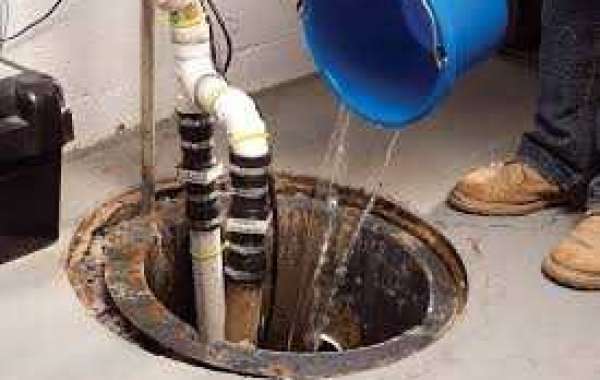Selecting the right water heater is a crucial decision that can significantly impact your comfort and energy efficiency, especially in cold regions where the demand for hot water is higher. The climate in colder areas poses specific challenges that must be considered to ensure optimal performance and cost-effectiveness. In this guide, we'll explore key factors to consider when choosing a water heater for cold regions and also touch on the relevance of sump pump repair for comprehensive home water management.
- Type of Water Heater: There are several types of water heaters available, each with its own set of advantages and considerations. In cold regions, where winters can be harsh, the following types are commonly recommended:
- Tankless Water Heaters: These heaters provide hot water on demand, making them energy-efficient and suitable for cold climates. They don't have a storage tank, reducing the risk of freezing in extremely cold temperatures.
- Heat Pump Water Heaters: These units extract heat from the air or ground, making them energy-efficient. However, their efficiency may decrease in extremely cold conditions.
- High-Efficiency Storage Tank Water Heaters: Modern storage tank water heaters with higher efficiency ratings can still be a viable option in cold regions. Look for units with enhanced insulation to minimize standby heat loss.
- Fuel Source: The choice of fuel source for your water heater is critical in cold climates. Common fuel sources include electricity, natural gas, propane, and solar. Consider the availability and cost of the fuel source in your region, as well as the efficiency of the water heater when using that specific fuel.
- Freeze Protection: In cold regions, the potential for freezing is a concern, especially for storage tank water heaters. Look for models with built-in freeze protection features. Some tankless water heaters and certain high-efficiency storage tank models are designed to withstand freezing temperatures.
- Insulation Quality: Adequate insulation is essential for water heaters in cold climates. This applies not only to the storage tank but also to pipes and plumbing. Look for water heaters with superior insulation to minimize heat loss, ensuring that the water stays hot for longer periods.
- Energy Efficiency Ratings: Energy efficiency is crucial for reducing heating costs in cold regions. Check the Energy Factor (EF) rating for storage tank water heaters and the Energy Efficiency Ratio (EER) for heat pump water heaters. Higher ratings indicate greater energy efficiency.
- Altitude Considerations: If you live in a high-altitude area where atmospheric pressure is lower, it can affect the performance of gas water heaters. Ensure that the selected water heater is designed or can be adjusted for use at high altitudes.
- Sizing for Demand: Cold climates often result in higher hot water demand, especially during winter. Ensure that the selected water heater has the capacity to meet your household's peak demand. Consider factors such as the number of occupants, appliances, and simultaneous hot water usage.
Relevance of Sump Pump Repair:
While selecting the right water heater is crucial for your comfort in cold climates, addressing potential water-related issues is equally important. This is where sump pump repair becomes relevant. Here's why:
- Preventing Basement Flooding: Sump pumps are essential for preventing basement flooding, which can be a common occurrence in cold regions due to melting snow or heavy rainfall. Sump pump repair ensures that your pump is in optimal condition to handle excess water and protect your property.
- Regular Maintenance: Regular maintenance and repair of sump pumps are necessary to keep them functioning effectively. Professionals can inspect and address issues such as pump failure, switch malfunctions, or clogs in the discharge pipe.
- Emergency Repairs: In the event of heavy precipitation or sudden snowmelt, a well-functioning sump pump is your first line of defense against basement flooding. Sump pump repair services provide emergency repairs to ensure the pump operates efficiently during critical moments.
- Comprehensive Water Management: Sump pump repair professionals specialize in comprehensive water management solutions. They can assess the specific needs of your home, recommend additional drainage systems, and contribute to a holistic approach to safeguarding your property against water-related challenges.
Conclusion:
Choosing the right water heater for your climate, especially in cold regions, requires careful consideration of various factors. From the type of water heater and fuel source to freeze protection and insulation quality, each aspect plays a role in ensuring optimal performance and energy efficiency.
Complementing your efforts to select the right water heater, sump pump repair services provide a critical component of comprehensive home water management. Sump pumps, when properly maintained and repaired, protect your property from basement flooding, a common concern in cold climates.
By combining the hot tips for choosing a water heater in cold regions with the relevance of sump pump repair, you create a comprehensive strategy for managing your home's water systems. This approach contributes to energy conservation, cost savings, and the overall resilience of your property against potential water-related challenges.










